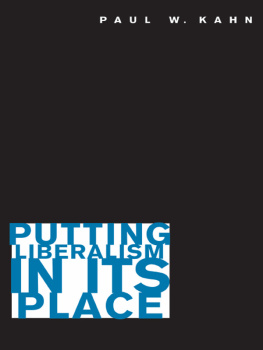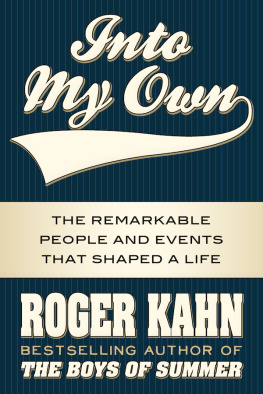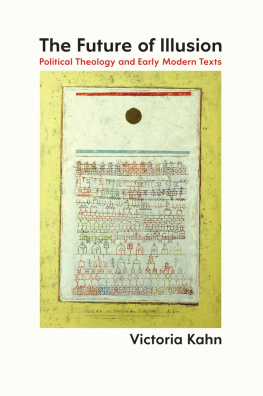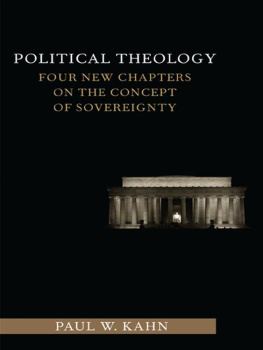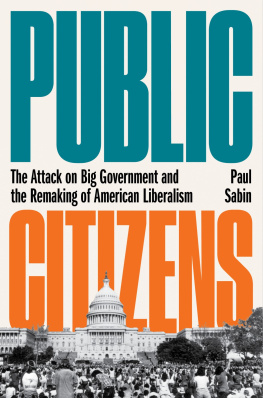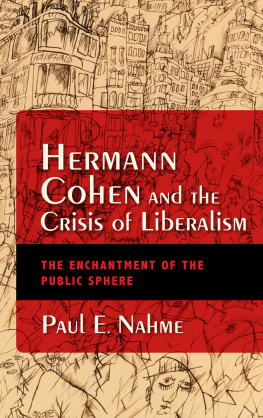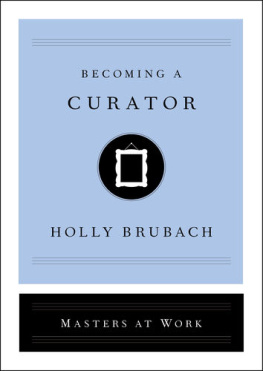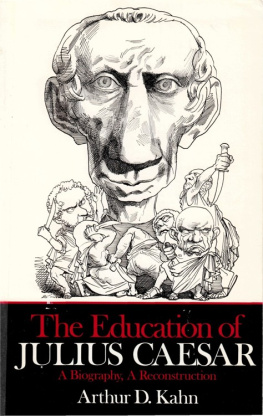Paul W. Kahn - Putting Liberalism in Its Place
Here you can read online Paul W. Kahn - Putting Liberalism in Its Place full text of the book (entire story) in english for free. Download pdf and epub, get meaning, cover and reviews about this ebook. year: 2009, publisher: Princeton University Press, genre: Politics. Description of the work, (preface) as well as reviews are available. Best literature library LitArk.com created for fans of good reading and offers a wide selection of genres:
Romance novel
Science fiction
Adventure
Detective
Science
History
Home and family
Prose
Art
Politics
Computer
Non-fiction
Religion
Business
Children
Humor
Choose a favorite category and find really read worthwhile books. Enjoy immersion in the world of imagination, feel the emotions of the characters or learn something new for yourself, make an fascinating discovery.
- Book:Putting Liberalism in Its Place
- Author:
- Publisher:Princeton University Press
- Genre:
- Year:2009
- Rating:3 / 5
- Favourites:Add to favourites
- Your mark:
- 60
- 1
- 2
- 3
- 4
- 5
Putting Liberalism in Its Place: summary, description and annotation
We offer to read an annotation, description, summary or preface (depends on what the author of the book "Putting Liberalism in Its Place" wrote himself). If you haven't found the necessary information about the book — write in the comments, we will try to find it.
Putting Liberalism in Its Place — read online for free the complete book (whole text) full work
Below is the text of the book, divided by pages. System saving the place of the last page read, allows you to conveniently read the book "Putting Liberalism in Its Place" online for free, without having to search again every time where you left off. Put a bookmark, and you can go to the page where you finished reading at any time.
Font size:
Interval:
Bookmark:
PUTTING LIBERALISM IN ITS PLACE
PUTTING LIBERALISM
IN ITS PLACE

Paul W. Kahn
PRINCETON UNIVERSITY PRESS
Princeton and Oxford
Copyright 2005 by Princeton University Press Published by Princeton University Press, 41 William Street, Princeton, New Jersey 08540 In the United Kingdom: Princeton University Press, 6 Oxford Street, Woodstock, Oxfordshire OX20 1TW
All Rights Reserved
Second printing, and first paperback printing, 2008 Paperback ISBN: 978-0-691-13698-1
The Library of Congress has cataloged the cloth edition of this book as follows
Kahn, Paul W., 1952
Putting liberalism in its place / Paul W. Kahn.
p. cm.
Includes bibliographical references and index.
eISBN 978-1-40082-631-5
1. LiberalismUnited States. 2. CommunitarianismUnited States. 3. Political cultureUnited States. 4. Social contract. I. Title.
JC574.2.U6K34 2005
320.51'0973dc22 2004049132
British Library Cataloging-in-Publication Data is available
This book has been composed in Sabon
Printed on acid-free paper.
press.princeton.edu
Printed in the United States of America
3 5 7 9 10 8 6 4 2
CONTENTS
Conclusion:
ACKNOWLEDGMENTS
I have been thinking about the arguments in this book for a long time. I have pursued them in many different contexts and with many different scholars. Colleagues, students, and friends have all taken the time to engage my ideas and, often, to point out the errors of my ways. I have learned from all of these engagements, even if I have not always followed the advice. Some people, however, deserve special thanks. Bruce Ackerman and Owen Fiss have been especially helpful, as were Annelise Riles and Jonathan Schell, during their visits at the Yale Law School. I learned much from George Fletcher and Andrzej Rapaczynski when I presented part of chapter six at Columbia Law School. Michael Ignatieff, of the Kennedy Center, also provided very useful comments when I presented part of the work in his project on American Exceptionalism. I have benefited greatly from the graduate student seminar I conduct at Yale. Participants in that seminar have included Daniel Bonilla, Hugo Cyr, Ming-sung Kuo, Marcio Grandchamp, Alejandro Madrazo, and Benjamin Berger. Of this group, I want especially to thank Daniel Bonilla for helping me to understand contemporary views on multiculturalism and for a very close reading of the entire manuscript. I also owe a substantial debt to a number of very fine research assistants: Wes Kelman, Zachary Richter, Bradley Klein, and Miriam Ingber. Ian Malcolm, of Princeton University Press, has been exceptionally helpful, as was an anonymous reviewer for the Press. I owe much to Barbara Mianzo, whose administrative skills make it possible for me to do what I do. Finally, my debts to my family are unending. I hope that they can see themselves at the center of this book about love and politics.
INTRODUCTION

PUTTING LIBERALISM IN ITS PLACE
Every age has its own point of access to ethical and political deliberation. For us, that point is the problem of cultural pluralism. Lacking a conviction in the absolute truth of our own beliefs and practices, we are uncertain how to respond to those who live by different norms. We are all too aware that such differences exist, as we interact with cultures that put different values on life and death, family and society, religion and the state, men and women. We constantly confront the question of whether some of the practices supported by these values are beyond the limits of our own commitment to a liberal moral philosophy and a political practice of tolerance. We worry about moral cowardice when we fail to respond critically, and about cultural imperialism when we do respond. The problem is both theoretical and practical: theoretical, when we struggle to find a form of reasoning that can occupy a position between a discredited claim to universal moral truth and an incapacitating moral relativism; practical, when we must decide how to respond to groups and individuals that offend our own values.
THE CHALLENGE OF CULTURAL PLURALISM
The problem of cultural pluralism has both an internal and an external face. Internally, we confront cultural differences within our own society. These differences arise only in part from the historical legacy of waves of immigrants who brought diverse traditions to the nation-building project. More importantly, differences arise because of contemporary critiques of traditional practice and beliefs. These critiques purport to expose the manner in which the traditions carry forward entrenched status relationships. Is the traditional family, for example, a cultural inheritance to be treasured and preserved, or does it perpetuate gendered role differentiation and patriarchal values that should be rejected? Is religion a source of values to be protected or of irrationality to be cabined? Is ethnicity a legitimate or an illegitimate source of political difference? Confronting this internal pluralism, we wonder how much normative difference can be absorbed by a single political culture and what common principles can hold together a multicultural society.
Externally, it is difficult to find any area of the world with which we do not interact, and about whose customs and practices we can express either ignorance or indifference. In fact, the larger the degree of dissonance between a foreign cultures values and our own, the more likely those practices will come to our attention. Differences between ourselves and others are not mere matters of degree or of interpretation of common standards. Rather, we have radically different understandings of the appropriate social norms and, consequently, very different expectations of politics. Europeans may be drawing together in a common political and moral order, but much of the rest of the world, from Africa to Asia, is following other patterns of orderor disorder. These cultural differences are deeply entwined with differences in material circumstances as well as political organization. Since these material and organizational differences are not likely to decrease as populations increase under conditions of material scarcity, it would be futile to try to disentangle cultural from material differences. Each inevitably shapes and is shaped by the other.
Aware that Western aspirations for a single global order are not universally accepted, we are thrown back again on the question of difference. We are forced to think critically about our own claims for universal norms. We are no longer quite so confident of the status of our own truths. We find Islamic states todayand even a Jewish statebut we do not find Christian states. The contemporary truths of the West are procedural and economic: the rule of law, democracy, and free markets. We wonder whether any of these constitutes adequate grounds for rejecting the moral truths of others. We appeal to the idea of human rightsIt is the law, we saybut beneath the legal rhetoric we find disagreement about the nature of the individual and his or her relationship to the community. Disagreement, we fear, may go all the way down.
Western states, including our own, have traditionally been quite willing to force people to comply with moral truth. The theoretical project, in the form of theological and philosophical inquiry, was to defend and elaborate that truth. Once the truth was grasped, there was no more difficulty in making it compulsory than there was in making individuals follow the rules of mathematics. As long as the good and the true were believed to be one and the same, moral science had the same status as natural science. Even as tolerant a country as our own has a past marked by little toleration for deep religious difference (consider the treatment, at various times, of Mormons, Catholics, and Muslims), for claims of racial and gender equality, or for the beliefs of non-Western immigrants and Native Americans.
Next pageFont size:
Interval:
Bookmark:
Similar books «Putting Liberalism in Its Place»
Look at similar books to Putting Liberalism in Its Place. We have selected literature similar in name and meaning in the hope of providing readers with more options to find new, interesting, not yet read works.
Discussion, reviews of the book Putting Liberalism in Its Place and just readers' own opinions. Leave your comments, write what you think about the work, its meaning or the main characters. Specify what exactly you liked and what you didn't like, and why you think so.

